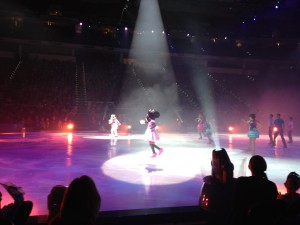On many long journeys have I gone. And waited, too, for others to return from journeys of their own. Some return; some are broken; some come back so different only their names remain.
–YODA, Dark Rendezvous
Although Hurricane Sandy and the election dominated my social media feeds this week, it was the announcement that LucasFilm FTD had been sold to Disney for $4 billion that seemed to cement the feeling of gloom to the week’s somber headlines.
For Star Wars groupies especially, the news was met with scorn, dismay and a distinctive C-3P0 anxiety attack. While there was some enthusiasm for the announcement, among many aging geeks, there was a sense that George Lucas had sold out his fans and that the whole franchise had run its course.
For those of us who’ve watched the last decade of big media copyright wars, however, the sale presented a certain Jedi-logic.
First, the sale represents an intellectual property marriage between two media giants who have a long track record of suing their fans for infringement – and who never particularly embraced the need for even a modest public relations effort in the wake of filing such claims. (Though Lucas, in recent years, engaged in what Larry Lessig referred to as a form of fandom “sharecropping.”)
The hubris index is not a factor in filing IP claims, but it should be. Neither company has been terribly expert at embracing their fans and understanding the extent to which their entertainment became a shared culture, something people love so deeply they spend their free time building, remixing and dreaming up the next iteration of that culture.
Secondly – and somewhat amusingly — the sale has spurred yet more culture jamming – with dozens of memes passing our screens this week. Most were not exactly the images on which to build the next generation of Star Wars devotees. This, of course, was all protected speech – and 10-year-olds will be oblivious to it — but exactly what kind of a business does a Disney/Star Wars hope to build in the wake of such a reaction?
I think with enough exploitation, derivative works are capable of reaching an endpoint — a Tatooine desert, if you’ll allow the metaphor.
Maybe that’s not the case for the mega-empire that is Star Wars – particularly if they’ve decided the 30+ crowd is no longer their target — but the cynicism this week online has me wondering.
Clearly, Disney is counting on the background noise this week to fade. But its base is the aging geek. And I think we know the difference between a moon and a space station.

